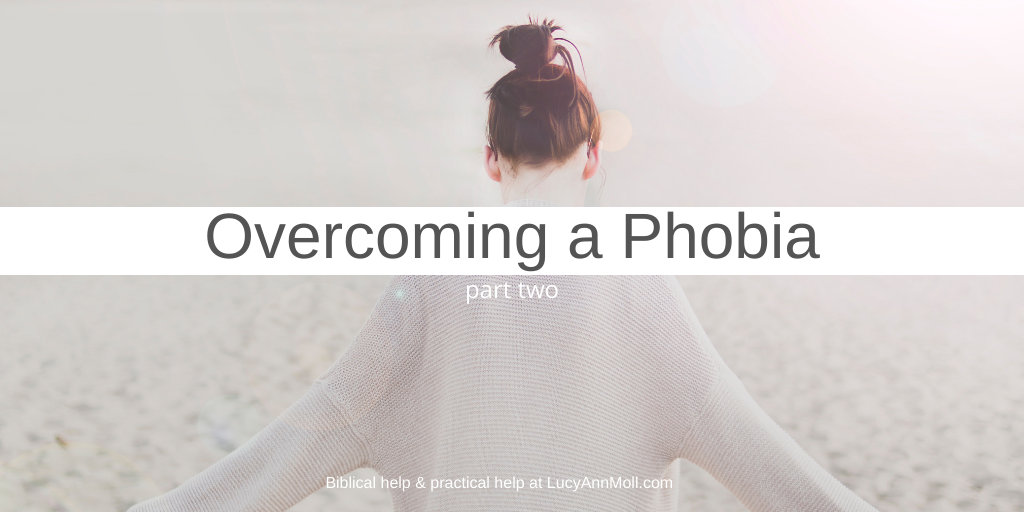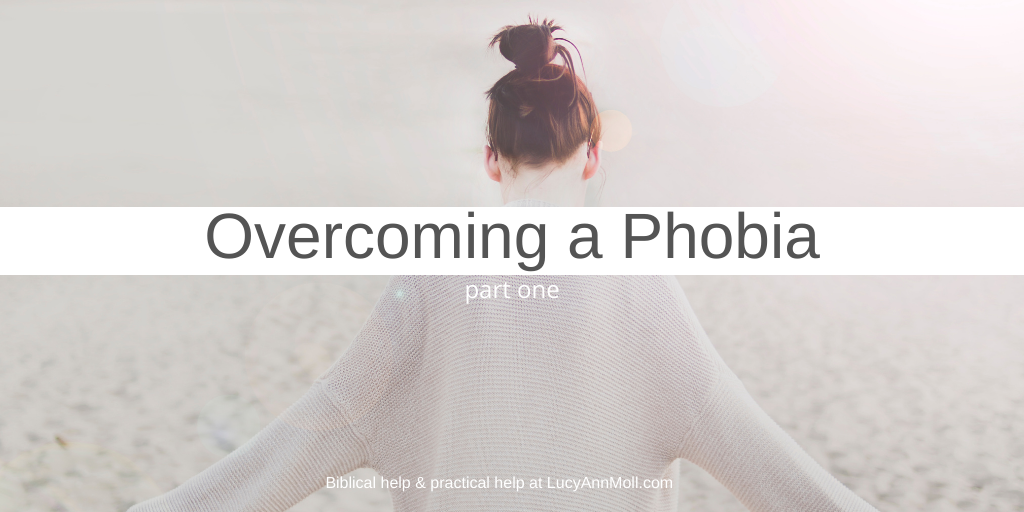
by Lucy | May 27, 2021 | biblical counseling, thoughts |
All of us talk nonstop in our heads, but few of us think well. Our nonstop thoughts are typically negative or downright nasty.
- “You’re so stupid.”
- “I just cannot take one more sleepless night.”
- “Things are never going to change. I’m stuck.”
- “No one loves me.”
Thoughts are powerful, aren’t they? What we think directly affects our emotions and actions. Consider this Scripture on thought-power: “For as he thinks in his heart, so is he” (Proverbs 23:7, NLT).
It is wise, then, that we become aware of what we think, and root out the lies we believe and replace them with the truth that sets us free. When we think well, our emotions and actions will line up with God’s Word, and we will become increasingly free of anxiety, worry, anger, despair, and enslavement to everything from pizza and Chardonnay to social media and erotica.
What we believe on, we will inevitably act on.
What is “thinking well”?
To think well you need to continually believe God’s truth. “Continual,” a present participle in the Greek, basically means, now that you believe Christ for your salvation, keep on continually believing Him all day, every day. “Therefore, as you received Christ Jesus the Lord, so walk in him” (Col. 2:6, ESV).
When you continually believe God, you are thinking well, and your emotions and actions fall in line.
Continual belief is a faith walk. It’s not easy. Consider folks in the Bible who harbored the sin of unbelief; that is, rejecting what God says is true. Among them:
Abraham. He lied. He passed Sarah off as his sister to protect himself against Egypt’s pharaoh. Moses. He murdered. David. He bedded another man’s wife. Yes, adultery. Naomi. She pity-partied. And Eve. She and her husband ate the forbidden fruit and. You know the rest of the story.
CHALLENGE: Imagine how your emotions would soar if you continually believed God and grasped how to think well. Do you want a huge drop in fear or anger or depression or addiction?
But how do you “think well”?
To think well is to choose thoughts that agree with God’s truth and that result with in action steps. Here are the four parts:
- Clue in to your current emotions.
- Watch what actions follow these emotions.
- Begin to identify the lies you believe.
- Replace the lies with God’s truth.
And, lastly, take a specific action step that aligns your life with the God’s truth. As we overcome the toxic, ungodly thinking that distort our emotions, we’ll discover the contentment in Christ. Who doesn’t desire that?!
If you would like a FREE Think Well chart to help you get stop negative thinking, send me a contact message and mention the chart.
Question: What is one thing that you will do to think well?

by Lucy | Apr 24, 2021 | biblical counseling, relationships |
Who do you aim to please? Your boss, your husband, your reputation, your bank account, your dog … yourself?
Anything or anyone placed ahead of God can become an idol. These may include things like,
- approval
- love
- comfort
- security
- significance
These seem innocuous, but they can ensnare us. They keep wanting more and more. Feeding an idol is a horrible, exhausting way to live.
In this article, we’ll first get a picture of what idol-worship may look like. It may be more common than you think. Then we’ll discover its antidote: growing in the fear of the Lord.
Meet an idol-worshiper.
Linda (name and some details have been changed) deeply desires that her Christian husband stop binge-drinking. His problem is obvious, but what’s hers?
She thinks that if she acts sweet (by picking up the kids’ toys before he returns home from work and by making nice dinners, for example), then he’d quit drinking and she’d get what she wants.
But no matter how sweet she is or how often she pleads with him to stop drinking, he continues to buy a 12 pack of beer and guzzle all of the beers when he comes home after work. Not every night … but often enough to cause her concern and fill her with fear.
There is nothing wrong with wanting a husband who makes wise choices. But when a desire becomes a demand, we have begun to make it an idol.
What’s her idol? Security. She says to herself, “I must have a godly and sober husband who cares for me and the kids, or I cannot be happy.”
You worship what you fear.
How do we tell if we are pleasing someone or something instead of God? Elyse Fitzpatrick nails it:
If she is willing to sin to obtain her goal or if she sins when she doesn’t get what she wants, then her desire has taken God’s place and she is functioning as an idolater.
Look back to the example of Linda. When her husband disappears into the garage with his 12-pack, she pouts and pleads, worries, and falls into self-pity. Her actions are understandable. Yet they are sins that she needs confess. This may not seem fair. We often sin in response to being sinned against.
A husband yells at his wife, the wife screams at the kid, the kid kicks the dog.
This dynamic may play out in your life too. It does in mine. When a friend failed to get back to me, and I feel ignored, I may sulk. When my husband seems more interested in TV than me, I may snap at him.
Choose better … please God only.
In her book Holy Fear, Christina Fox helps us to trade lesser fears for the fear of the Lord. Here are three ways she highlights.
1. Study God’s word.
To grow in the fear of the Lord, we must know him, and the very best way is to study God’s word. When we read scripture, we can ask ourselves, “What does this teach me about God?” The more we learn about who God is, the more we grow in our fear of him.
2. Remember God’s works.
As we recall that God rescued the Israelites from slavery in Egypt, the prophet Jonah from the belly of the great fish, the apostle Paul from death time and time again, we grow in the fear of the Lord and desire to please him only. Great ways to remember God’s works today: worship with other believers on the Lord’s Day, sing praises to him, and share at the communion table.
3. Pray for greater fear.
Prayer helps us to depend on God more and ourselves less. “We find our hearts reshaped to want what God wants more than what we want,” Fox says. “We grow to want his glory and fame spread throughout the world and not our own. Indeed, prayer not only feeds and nourishes us, it transforms us.“
So who do you now aim to please?
God is jealous for our love. He hates your giving it to anyone or anything but him.
You shall have no other gods before me. (Exodus 20:3)
As we grow in the fear of the Lord, we will aim to please him, not a person or a thing like money, approval, security, or any lesser fear. When Linda came to realize that she wanted security above all things, even God, she agreed with the Lord that her desire was misdirected. She poured out her heart to the Lord, asking him to help her love him most of all.
Her husband still drinks sometimes, but less than before. Most importantly, she has a new attitude that God will provide her everything she really needs. The Lord is her safe place.

by Lucy | Mar 26, 2021 | biblical counseling

by Lucy | Jan 18, 2021 | biblical counseling
An Invitation
Are you sick of fear? If so please contact me for a complimentary phone consult to see how biblical counseling through Telehealth would help you. I’ve counseled thousands of women and their families via Telehealth and Skype since 2008 worldwide. Biblical counseling by video is effective, affordable, and convenient.
Steps Toward Victory
Christian speaker and author Patty Clairmont battled agoraphobia for 17 years, beginning in her teens. Her fear became so overwhelming that she was afraid to leave her bed. A professing Christian, she prayed to Jesus and was led by the Spirit (Gal. 5:18) to take small steps toward victory over her fear habit, beginning with reading and memorizing Scripture.
Repeatedly giving in to fear reinforces and intensifies the fear, resulting in habits that have become an ingrained manner of life. Conversely, loving God and others by replacing fear with love leads to victory over a phobia.
Sometimes, a phobia is short-lived; sometimes, it may afflict a person for decades. In either case, the lasting, biblical solution is to renew our minds with the truth of God’s Word and to learn to trust Him with our anxiety, even with a phobia.
Here are some steps that will help in overcoming an irrational fear, whether germaphobia or another specific phobia, the fear of public speaking (a type of social phobia), or agoraphobia (the fear of fear).
1. Be Realistic
The fear habit is ingrained in the way we think, feel, and act. It takes time to change this habit. So be persistent. Also, make an action plan in which the counselee renews his or her mind through Scripture and commits to exposure to the feared object or situation, a bit at a time.
2. Do the Basics
Get adequate sleep (about 7-9 hours daily for most of us), eat nutritious foods, drink ample water, avoid caffeine and alcohol, and exercise regularly. A medical checkup may be wise, too.
3. Renew Your Mind
Reduce the intake of all negative and anxiety-producing inputs from music, television (including news programs), the internet, video games, and reading materials, and replace them with God-honoring alternatives, especially the Bible and hymns.
4. Pray
The apostle Paul provides a prayer prescription for freedom from anxiety: “Do not be anxious about anything, but in everything by prayer and supplication with thanksgiving let your requests be made known to God.” (Phil. 4:6). When we respond to the intense fear of a phobia with thankful prayer, peace replaces anxiety.
Remember, God promises to be with every believer (Heb. 13:5-6) and to provide what we need to endure the temptation to succumb to irrational fear (1 Cor. 10:13).
5. Replace Lies with Truth (Further Mind Renewal)
How you feel and act is a product of your thinking. When you think godly thoughts, godly emotions and behavior follow. “As (a person) thinks within himself, so he is” (Prov. 23:7, NAS).
To this end, I encourage my counselees to use a Thought-Emotion-Action journal in which they identify a lie, such as “I just cannot take any more” with the truth: “Whatever I am facing, God’s grace is sufficient for me.” As the truth replaces lies, they experience a welcome change in their emotions (from fear to calm) and in their behavior (from avoidance to constructive action).
6. Act On What You Know To Be True
At Biblical Counseling Center, where I am a counselor of women and families via online video, we often say “faith is believing the Word of God and acting upon it, no matter how I feel, knowing that God promises a good result.”
When I finally faced my phobia of highway driving head-on, I had to make a choice to believe God’s promises regarding His care for me even if I had a panic attack. You can read about it in my mini-book Help! I Get Panic Attacks. I also intentionally concentrated on the spiritual disciplines of Bible reading, Scripture memorization, prayer, listening to and singing hymns, and having fellowship with other believers. I made an action plan of progressively tackling more difficult highway driving over time.
7. Practice Biblical Meditation
As Paul Tautges describes in Anxiety: Knowing God’s Peace, biblical meditation involves talking to ourselves—doing what the psalmist does in Psalm 116:7: Return, O my soul, to your rest; for the LORD has dealt bountifully with me. When we remember God’s kindness toward us, our faith strengthens.
Tautges advises that we call on the Lord when we are in distress. Our battle with the irrational fear of a phobia cannot be passive. To overcome a phobia, you must intentionally “lean into God as your trustworthy caregiver and cultivate a heart of thanksgiving.” In so doing, fear fades “in comparison to the peace that is found in Jesus.

by Lucy | Jan 14, 2021 | biblical counseling
Did you know that nearly one in ten Americans have a phobia? (Check this out.)
Since the pandemic began, germs have been at the center of our national conversation. Now it is coupled with the political turmoil of our day. All the talk about COVID-19 has created anxiety in many people; and it’s no wonder—this microorganism that causes the disease is invisible, silent, and sometimes deadly.
The pandemic has targeted its terror on germaphobes, that is people who have germaphobia (also spelled germophobia). However, people with an intense fear of germs have a lot of company; there are millions of us who have a phobia of some sort.
Take courage. You can overcome a phobia.
We will consider the prevalence and type of phobias and their signs and symptoms in Part One of this two-part series and then discuss biblical solutions in Part Two. It appeared first here at the Biblical Counseling Coalition and has been updated.
Thousands of Phobias!
Germaphobia is one of many thousands of phobias. Here is a long list of them.
What they have in common is an intense, irrational fear of something that poses little or no actual danger. The word phobia comes from the Greek word “phobos,” which means fear or terror. For instance, hydrophobia literally means the fear of water, aerophobia is the fear of flying, and glossophobia is the fear of public speaking or of speaking in general.
In Scripture, phobos has two primary meanings: sometimes, it is positive and speaks of awe or respect, as in Acts 2:43, but usually, it refers to withdrawal from the Lord’s will. Here is an example of the latter: “They were terrified and asked each other, “Who is this? Even the wind and the waves obey him!” (Mark 4:41, NIV).
Types of Phobias
DSM-5, used by health professionals to describe and diagnose mental health conditions, lists phobias in categories: specific phobias, social anxiety disorder (formerly social phobias), and agoraphobia.
While DSM-5 describes phobias and other anxieties, it falls short in addressing the deepest needs of the human heart and soul. Therefore, counselors who desire to minister to the heart of people they counsel offer remedies that differ from the medical mainstream. As a biblical counselor, my goal is to point fellow strugglers to the changeless truth of God’s Word, which speaks to fear and how to handle it biblically, the topic of Part Two of this article.
Specific phobias zero in on one fear like the fear of germs. Other common specific phobias are fear of heights, elevators, dentists, and thunderstorms. The National Institute of Mental Health reported that 9.1 percent of U.S. adults had a specific phobia in the past year and that 12.5 percent of U.S. adults experience a specific phobia at some point in their lives.
Social anxiety disorder (formerly called social phobia) involves fear of embarrassment or humiliation in situations where you may be noticed or scrutinized. Common social phobias are fear of crowds, fear of spilling food while eating in public, and, of course, fear of public speaking.
Agoraphobia is the mother of all phobias, as it has been described as “the fear of fear.” Folks with this phobia often avoid grocery stores, movie theaters, restaurants, and public transportation. Approximately 0.9 percent of U.S. adults had agoraphobia in the past year, with the degree of their problem varying from mild (28.7%) to moderate (30.7%) to serious (40.6%).
Signs and Symptoms of a Phobia
Someone with a phobia may experience mild apprehension toward the feared object or situation or may have a full-blown panic attack. Bodily sensations of a phobia may include these:
- difficulty breathing
- a racing heart
- chest tightness
- perspiration
- trembling
- tingling in the hands and feet
- nausea.
Emotional effects of a phobia include fear of losing control or going crazy and feeling an intense need to escape. The more symptoms, the greater the fear and the greater the likelihood that panic attacks may develop.
I describe a specific phobia of highway driving that led to my experience of panic attacks in my mini-book Help! I Get Panic Attacks.
An Invitation
Are you sick of fear? If so please contact me for a complimentary phone consult to see if biblical counseling through Telehealth would help you. I’ve counseled women and their families by Telehealth and Skype since 2008 all over the world. I’d love to help you too. Biblical counseling by video is effective, affordable, and convenient.








